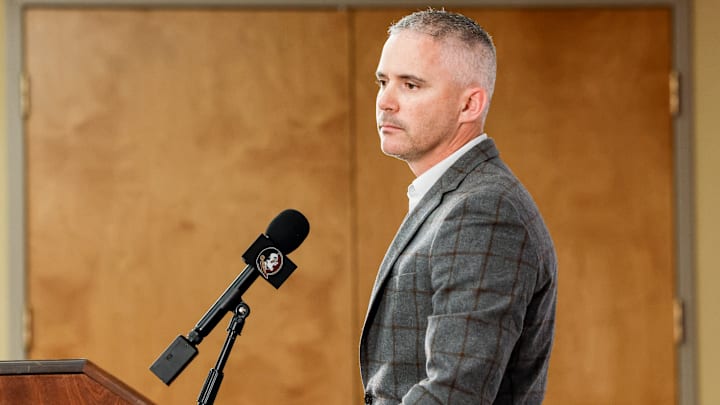At the start of June, Judge Claudia Wilken finally ended the NCAA's long court battle approving the NCAA House Settlement. The biggest of all the changes that the House Settlement brought about was revenue sharing as College's will now be able to directly pay their athletes. In this NIL era, collectives would handle NIL but, the school itself now cutting players in on the money they generate is a brand new innovation in College athletics.
While the House Settlement was approved and revenue sharing has arrived, it was never going to end the drama in college sports. As schools begin to pay their players, they need to get the players to sign contracts and with the school never playing in this arena along with underqualified agents in College Football, chaos was set to be unleashed.
The first school to come under fire for the contracts they've sent their players is Florida State.
Florida State's rev share contract drafts have drawn sharp criticism from those in the NIL space, multiple sources tell @CBSSports. Unusual stipulations include:
— Chris Hummer (@chris_hummer) June 26, 2025
- FSU's ability to extend a contract at the same rate throughout an athlete's eligibility window
- A lack of… pic.twitter.com/0zVf2mWL9y
The part of Florida State's revenue sharing contract that's drawing the most heat is unusual language that allows the school to extend the contract. While Florida State will want to extend the contracts, the language in the contract allows the school to continuously extend their contracts without ever negotiating. Florida State trying to sneak it past the players so that they can't renegotiate is a crazy and immoral move.
Agents and other General Managers also took issue with the lack of protection from future injuries that Florida State put in the contract. In the contract, the following is a "breach of contract" in Florida State's contracts.
"Illness or Injury Impacting Value of NIL Rights. Student-Athlete experiences any illness or injury which is serious enough to affect the value of the rights granted to [school] under this Agreement; provided, however, that nothing herein shall affect or limit [school]'s obligations to provide Student-Athletes with medical coverage of injuries sustained as a result of participation in [school] Athletics as required by Section 16.4 of the NCAA Division I Bylaws, where applicable."FSU Revenue Sharing contract
The language in the contract is where everyone has taken issue as the school can simply dump any player that suffers a serious injury which is a terrible look.
The "Substance Abuse Fines" are another interesting issue when it comes to the proposed contracts. The first offense comes with a maximum of $1,000 reduction from total compensation, the second offense is a maximum 10% of the compensation, and a third offense is 50% of a player's total compensation and a possible dismissal at the head coach's discretion.
While there needs to be strict substance abuse fine, Florida State's language leaves some serious loopholes that any agent won't agree to. For example, if these are team issued test, Florida State could simply say a player failed to fine them or they can make a player who failed test three times in a row to get out of their contract.
When the House Settlement was approved, there were always going to be some struggles from the schools as they tried to figure out how to structure these contracts. The Seminoles may not have meant to make these deals so terrible for the players but, they also clearly drafted the ones that gave the school as many outs as possible leaving the players with no control. As each school continues to refine their process, eventually these contracts will become like the NFL's deals as it'll become an easy deal to finalize.
